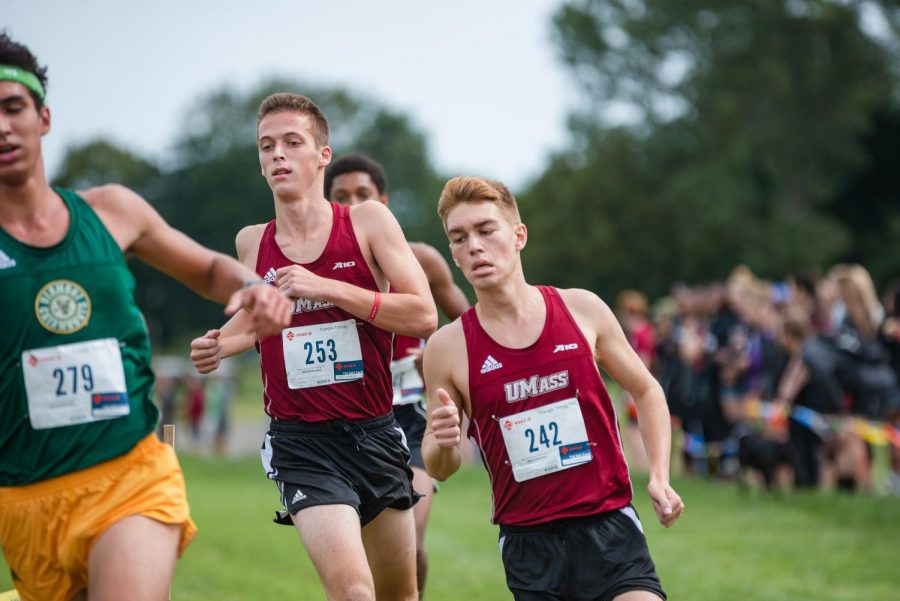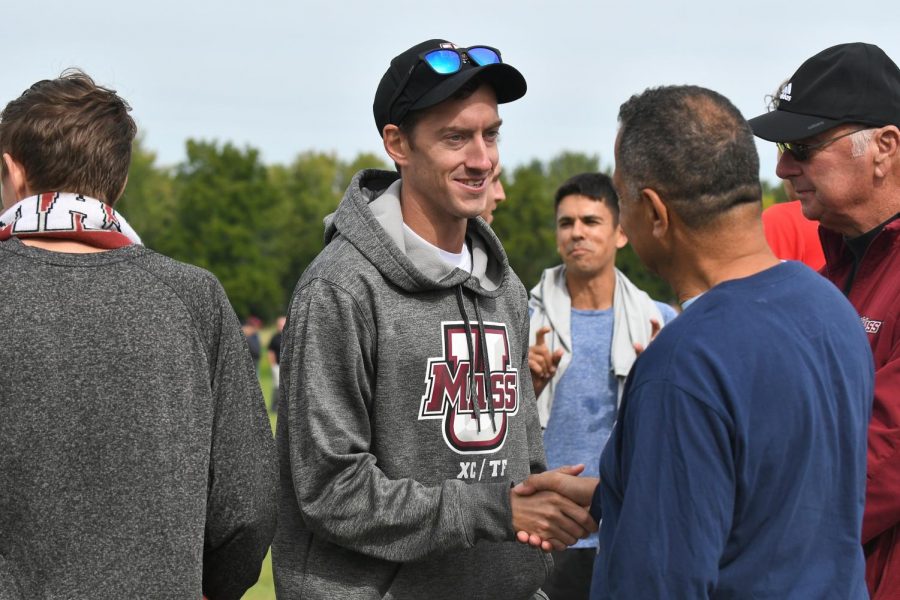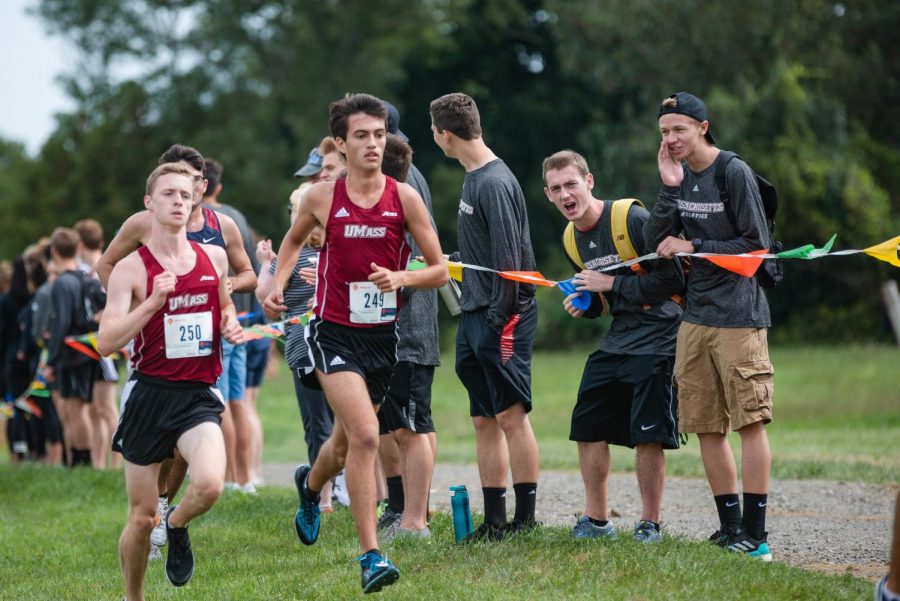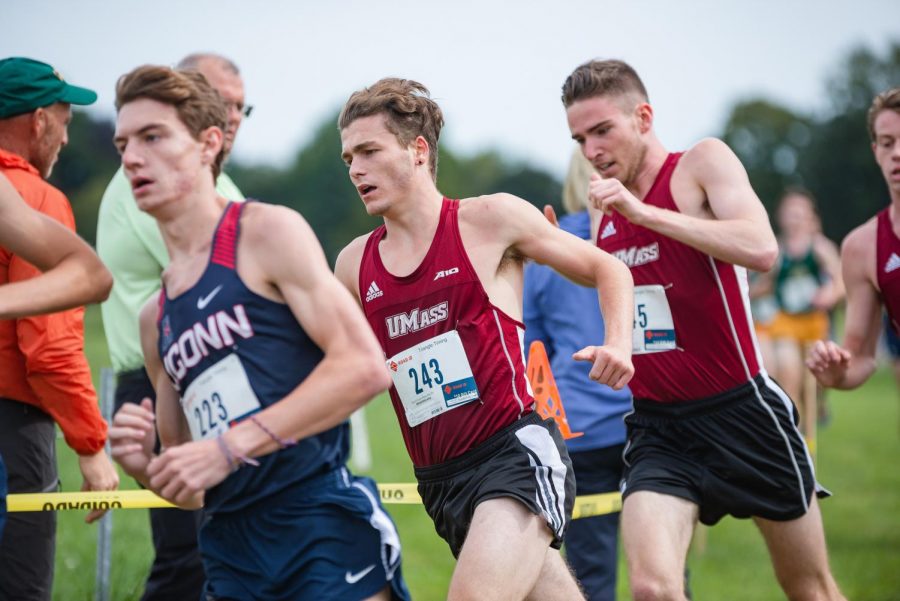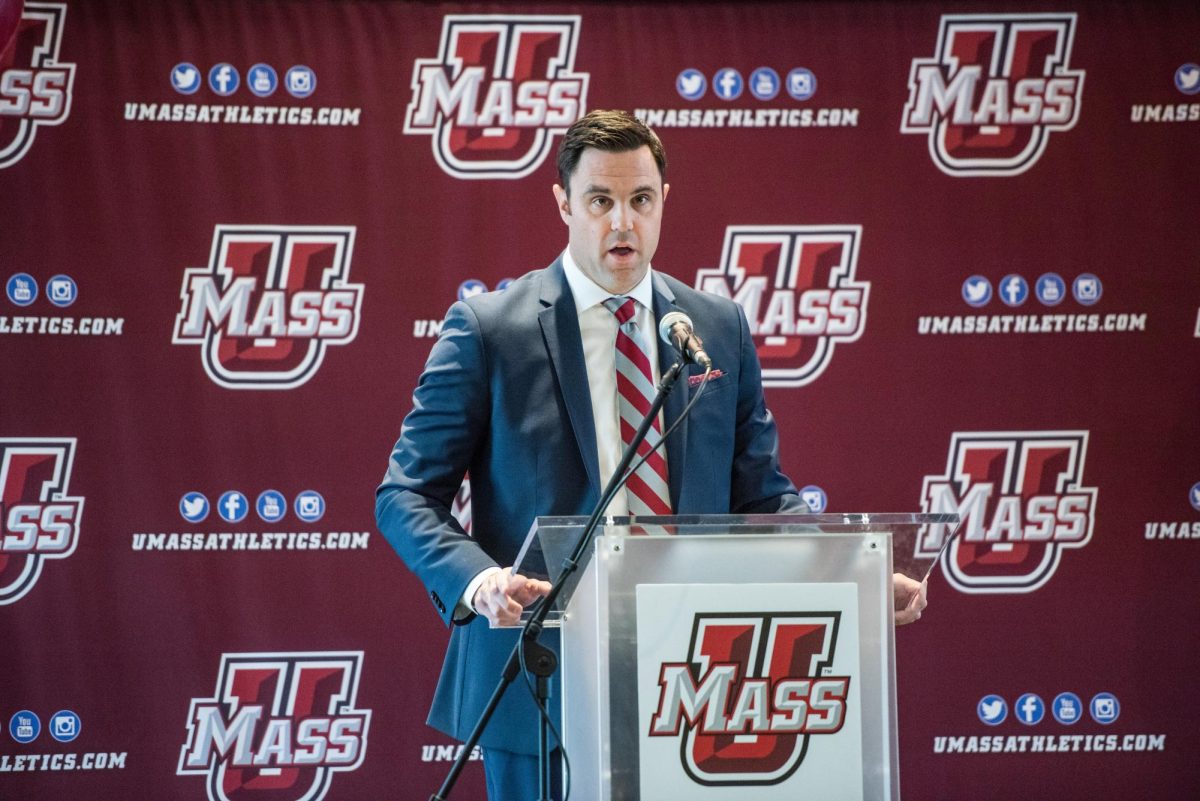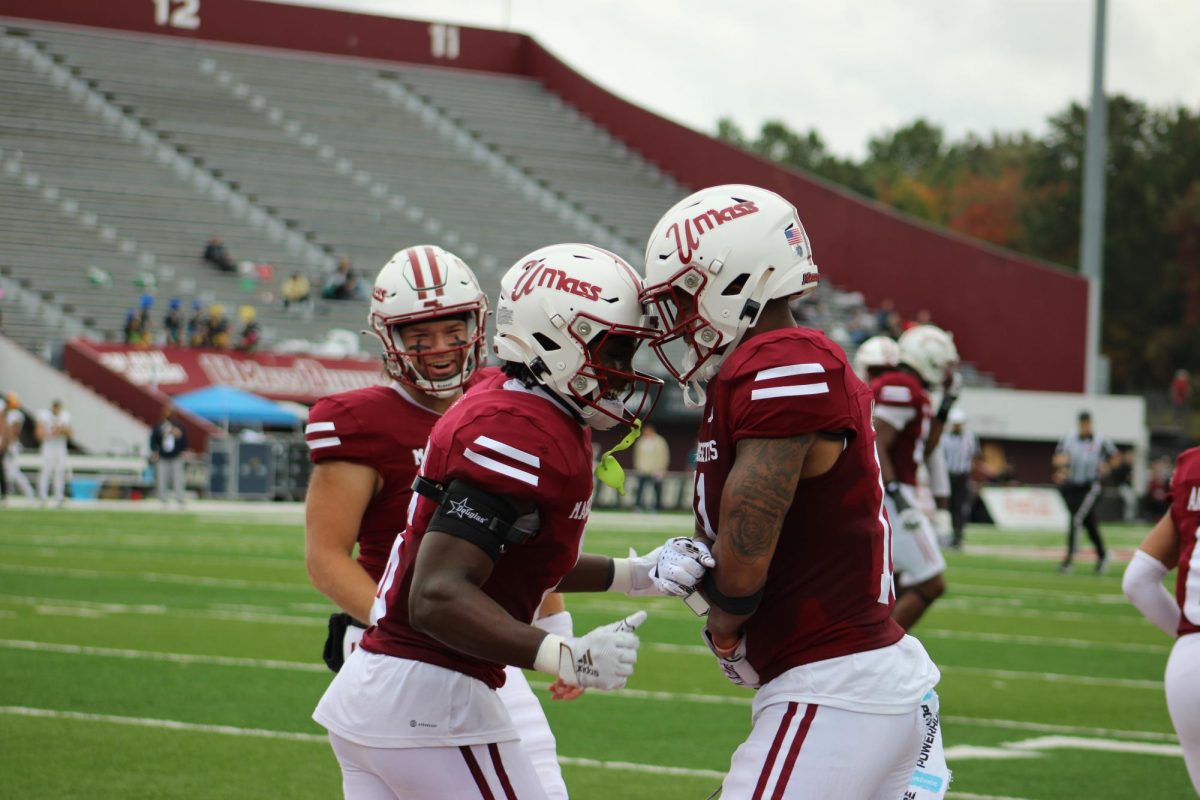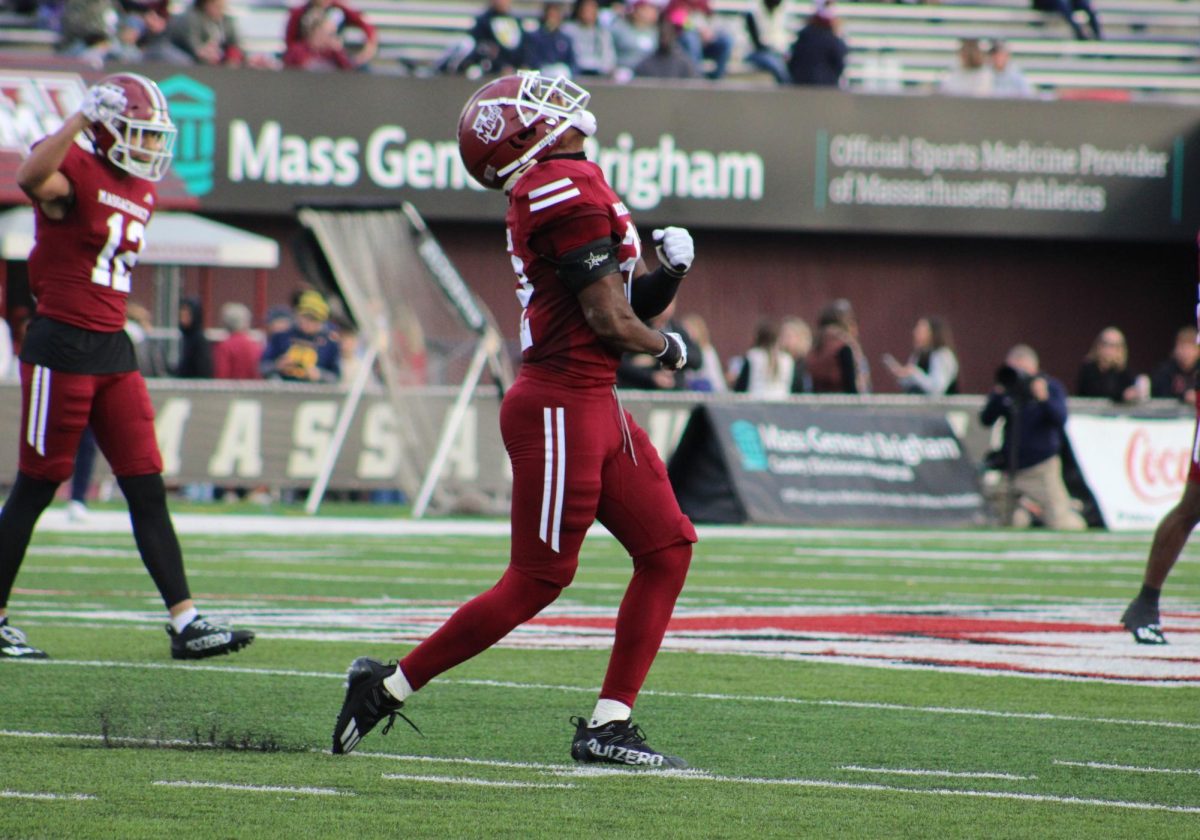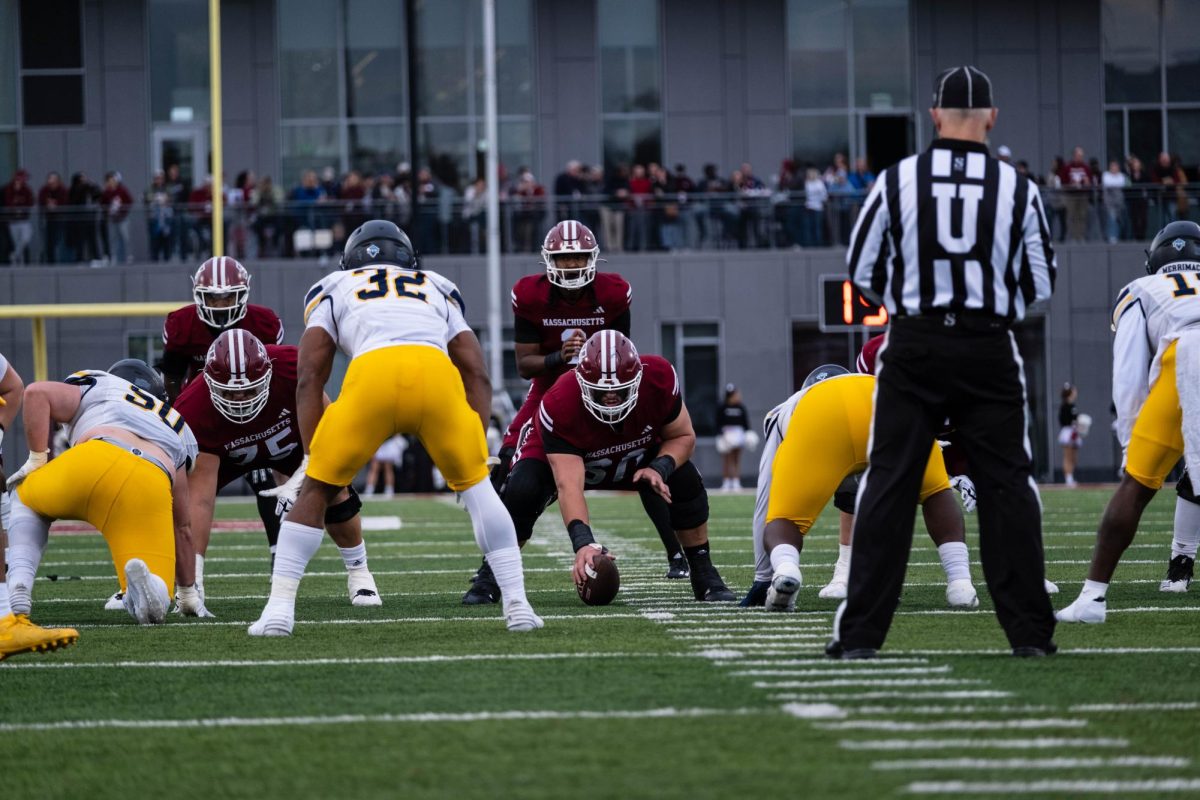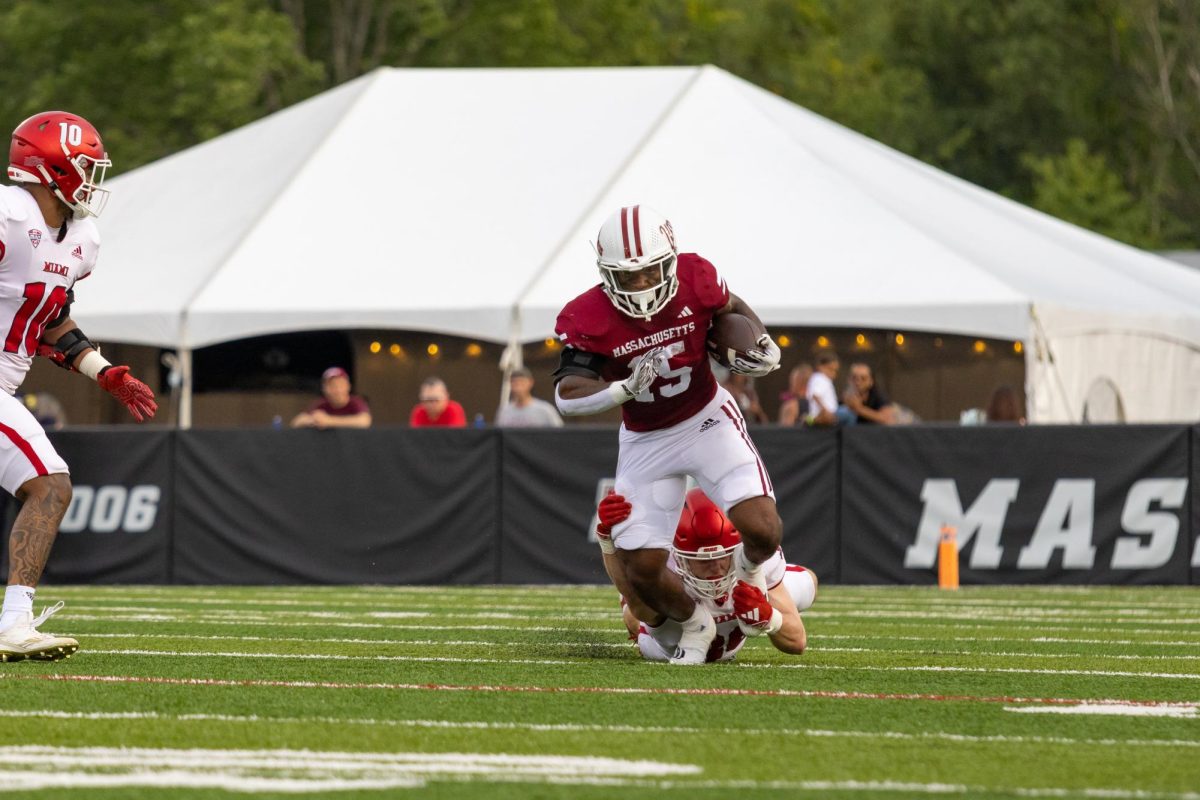
As she readies her team for this year’s Atlantic 10 Championship meet on Saturday, Massachusetts women’s cross country coach Julie LaFreniere is also reflecting, as this year marks the team’s 40th anniversary.
LaFreniere, who was a member of that very first Minutewomen team, talked about the help she and her teammates got from current UMass men’s coach Ken O’Brien in convincing the school’s administration to make women’s cross country a University-sponsored varsity sport.
The biggest advantage for the Minutewomen was that their practices took them through campus, which served as a recruitment tool for women to get involved with the team as they saw them run by.
In the team’s first year, it earned a trip to nationals, which was then conducted by the Association for Intercollegiate Athletics for Women.
“I remember we were too embarrassed to go to nationals that year because we still didn’t have uniforms, so the night before the meet we bought men’s tank tops and we had to sew the armpits in to fit us as we ironed ‘UMass’ on the front of them,” LaFreniere said.
The Minutewomen earned ninth place that first year under O’Brien, after the athletic department deemed him fit to coach both teams. LaFreniere would graduate in 1977, but her involvement in the program was far from over.
Title IX and the beginning for LaFreniere
Title IX, a federal law prohibiting discrimination on the basis of sex, was passed in 1972 while LaFreniere was attending Gardner High School.
Her brother was also a cross-country runner, and when the law was passed, schools had to come up with different ways to get female athletes involved. It was common for high schools to allow female runners to compete with the boys as a cheaper alternative to setting up a separate team. LaFreniere jumped at the opportunity.
“Long hair was in style for boys back then so it wasn’t always obvious, but as I passed by spectators closely I could literally hear them gasp ‘a girl!,’” LaFreniere said.
LaFreniere said having her brother there helped her become closer with team, who accepted her despite being the first girl to compete after Title IX’s passing. She competed in multiple events in track and field, and this experience with different events in high school gave her a slight advantage as a future coaching prospect.
“With her already having experience across the board, I didn’t know at the time what she wanted to do, but in the back of my mind I thought if she wanted to coach she already had a head start,” O’Brien said.
Upon graduation from UMass in 1977, LaFreniere began teaching and coaching at high school in North Hadley. She was then asked to come back to UMass to become a part-time assistant coach as she earned a masters degree in sports management. She eventually left in 1984 to take a full-time position at the high school level.
In 1987, UMass women’s cross country coach Randy Thomas decided to leave the program just before the season started. The Minutewomen needed another coach on short notice, and LaFreniere was called back to the program as a full-time head coach for the track and field and cross country teams.
“There is a lot of paper work to go through at a state university when you hire a new coach, but we couldn’t have gotten someone more qualified,” O’Brien said.
Three decades of consistency
LaFreniere began coaching her first meet at UMass before she even got to know all the runners on the team. However, it didn’t take long for her to adjust to the world of collegiate coaching.
By the 1990s, LaFreniere and the Minutewomen hit their stride. From 1991-2001, UMass cross country won seven A-10 conference titles and four titles in track and field. Personally, she also earned 11 A-10 coach of the year awards over this span.
“Yeah, I really had to hit the ground running with the first meet so soon after I was hired, but I’d say it has been a pretty successful run since,” LaFreniere said.
At the turn of the century, the Minutewomen saw a little bit of a drop in the overall standings in the conference championships each season. The recruiting classes started to lose their strength with other programs beginning to receive higher funding. However, LaFreniere continued to keep the mantra of shutting out surrounding circumstances and focusing on the team she had and the meets in front of her.
This attitude has been displayed through her athletes and assistant coaches through the years. The same held true when assistant coach David Jackson first met her seven years ago.
“She first struck me as a dedicated person to the University, and that is exactly who she is,” Jackson said. “She wants women’s track and cross country to succeed, she is a true competitor and this state is in her blood.”
Holding down the head coaching position for so long gives LaFreniere an edge in recruiting beyond funding disadvantages. With other programs constantly changing coaches, O’Brien and LaFreniere have built a pipeline in the state of Massachusetts unlike anyone else. Often the athletes they recruit already know someone who has competed for them before.
It is not just word of mouth that makes an impact among athletes that join the Minutewomen. LaFreniere leaves a particular first impression on athletes she meets, and it convinces the right athletes to come to the program. It’s the reason current captain Heather MacLean decided to attend UMass three years ago.
“She was kind of awkward when I first meet her, but she was really straight forward with me, said MacLean, a junior. “She doesn’t want partiers, she wants us all to be dedicated to the sport and becoming better runners and that’s what made me want to commit.”
This relationship doesn’t stop at the recruiting period of her athletes’ careers either. Throughout her tenure, LaFreniere has developed close relationships with her runners and has pushed them to achieve more than the average coach would. She creates a family atmosphere that has her athletes running for each other.
“She’s like a second mom to me, I always feel like I can go to her for anything,” MacLean said.
“She’s a big part of the family vibe that you don’t get at other schools, and she never gives up on her athletes through sickness or injury,” junior Dierdre Martyn added. “I don’t think any other coach would have believed in me the way she did through my injuries.”
With hopes that the program is starting to rise back to where it was 15 years ago, LaFreniere has all the more reason to continue what has already been a successful run.
However, she doesn’t need that kind of motivation.
“What makes her so successful is that she is in it for the right reasons, it’s not about money and she wasn’t coming in blind to what coaching in college is like,” O’Brien said. “This is a way of life for her.”
Nicholas Souza can be reached at [email protected]u.







